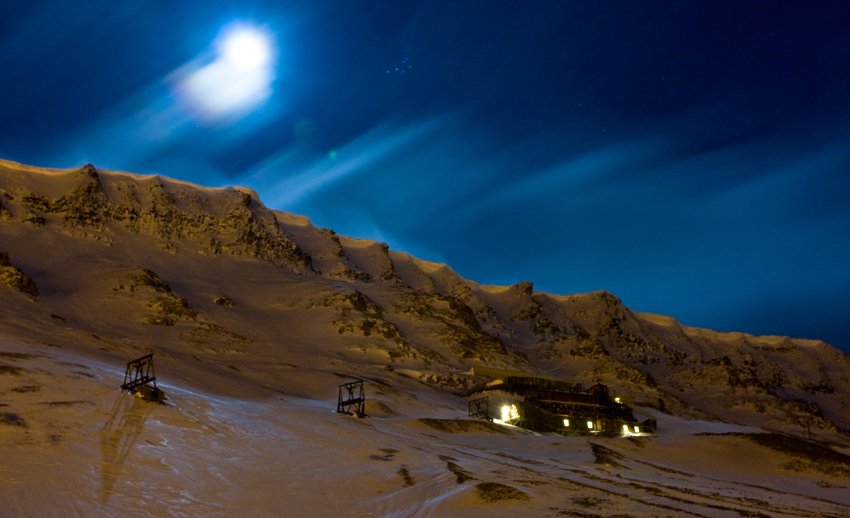SH-201 The History of Svalbard (6 ECTS)
ID:
SH-201
CREDITS:
6 ECTS
START DATE:
January 29, 2024
END DATE:
February 12, 2024
COURSE PERIOD:
Spring semester (afternoon course in January/February), annually. 2024: 29 January - 12 February at 16:15-18:00 in Møysalen

Photo: Thor Inge Vollan/UNIS
| Grade: | Letter grade (A through F) |
| Course Cost: | None |
| Course Capacity Min/Max: | 5/- students |
| Language of instruction: | English |
| Examination support material: | Bilingual dictionary, on paper, between English and mother tongue. |
Course requirements:
This course is open to all enrolled students at UNIS, and to the Longyearbyen public. Only UNIS students (including Arctic Nature Guide students) are allowed to sit the exam.
Academic content:
The point of departure of the course is the gradual colonization and exploration of the circumpolar Arctic from pre-historic times until the modern period. The course discusses early exploitation of Svalbard as a resource frontier with emphasis on whaling and hunting as well as economic activity in the modern era, first and foremost mining and large-scale tourism. An overriding perspective is the interaction between man and the environment through nearly 400 years of resource harvesting.
The history of science on Svalbard will be outlined from its early beginnings in the 18th century until the present, including the more spectacular polar expeditions. Political history includes the question of sovereignty and the emergence of a management regime, local governance, and the role of Svalbard in a geopolitical context.
The development of Russian and Norwegian local communities is covered, and the local history of Longyearbyen.
Learning outcomes:
Upon completing the course, the students will:
Knowledge
- have a comprehensive overview of Svalbard’s history from its discovery in 1596 until the present day, covering main aspects of economic and scientific activity, politics, social and cultural development.
Skills
- have acquired a basic understanding of historical thinking and applied historical method.
General competences
- have acquired a wider cultural context for and a historical perspective on their disciplinary studies and life in Svalbard
- have basic training in critical assessment of source material to form balanced judgment.
Learning activities:
The course extends over two weeks. The course runs Monday–Friday afternoons.
Self-study, ca. 250 pages of relevant literature (see suggested reading list) in addition to ca. 20 pages of lecture summaries. A web-based written exercise must be approved to sit the exam. During the course there will be a guided visit to Svalbard Museum and 7 or historical walk in Longyearbyen.
Total lecture hours: 20 h
Excursions: 1 voluntary museum visit and/or historical walk.
Compulsory learning activities:
- at least 80% attendance at lectures
- one web-based written exercise
All compulsory learning activities must be approved in order to sit the exam.
Assessment:
| Method | Duration | Percentage of final grade |
| Written exam | 3 hours | 100% |
Application deadline: This course cannot be applied for separately.
UNIS students should register online (see instructions in your e-mail). Others: No pre-registration necessary, just show up on the first lecture.